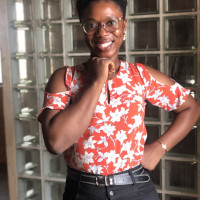Building Vocabulary Basic Chemistry Terms
Chemistry is a subject loaded with complex words and phrases. This might seem a little overwhelming. In fact, getting to grips with all the scientific vocabulary might exist the thing that is putting yous off opening your textbooks in the get-go place.
Luckily, with this handy guide to the most important general chemistry terms, you lot should start feeling more comfortable in no time. They are worth knowing not only for chemists themselves, or for the professors and engineers who use them. Rather, everyone should know these words and definitions, every bit they help to unlock that earth of fizzing experiments, laboratories, and flaming reactions that is chemistry.
Then, if you are studying for your GCSEs, or if you demand a refresh before your A Level exams, have a look at this introductory chemistry dictionary and learn something!
If you reckon you know it all already, check out our other articles with everything you lot need to know almost chemical science.

The best Chemistry tutors bachelor
Key Terms in Chemistry: The Minor Stuff
Permit's offset small-scale. Chemistry, basically, is the study of atoms, elements, compounds, and molecules. These are four terms to get yous going. But what practise they mean? It's an of import question, as these four things (and the stuff of which they themselves are made) make up everything in the universe.
An chemical element – iron, say, or oxygen – is a pure substance or something that y'all cannot interruption down into some other substance. You can only break it downward into atoms, or the smallest bits of the element that you tin can nonetheless recognise as this or that element. An element is but lots of the same cantlet.
How about molecules and compounds? These are slightly dissimilar.
- Molecules, merely, are 2 (or more) atoms joined – or bonded – together. So, whilst an oxygen atom is not a molecule, if two oxygen atoms bond together, so that is a molecule (what we would telephone call O²).
- Compounds are molecules that have bonds between two different types of atom. In this instance, if you add a carbon atom to O², you get CO². This is carbon dioxide, and this is a compound.
If you're interested, we've also published a piece on wicked chemistry facts. Check information technology out!
Even Smaller: Further Terms in Bones Chemistry
To understand how these atoms bail together, nosotros need to go smaller still. As you may know from your chemical science lessons, atoms are made of particles, which either clump in the cantlet's nucleus or spin around that nucleus. These particles have a charge that is either positive, neutral, or negative. The nucleus (the middle of the cantlet) holds the protons, which have a positive charge, and the neutrons, which are neutral. The negatively-charged electrons, meanwhile, orbit the nucleus.
These are key to understanding how molecules and compounds are made. Atoms bond with each other because of these electrons, and there are two types of bonds: ionic and covalent.
- With covalent bonds, two atoms share a pair (or more ane pair) of electrons.
- In ionic bonds, one cantlet donates an electron to some other. When this happens, the donating atom becomes an ion: it becomes positively charged. Metals are those elements that like to lose electrons, forming bonds and developing positive charges.
Go information about chemistry tutoring hither.

Chemical science'southward Key Vocab: Chemical States and Compounds
At present we've covered the basic chemistry terms, let's have a look at some words that you'll hear flying around your chemistry section.
Molecules brand up substances, which tin can exist constitute in iii different states. These you will probably have heard already, but it is of import to remember that a substance tin can alter its land due to heat and pressure.
- Gases: These are substances with no fixed shape or definable book.
- Liquids: Substances that are fluid, with no stock-still shape but with a definite book.
- Solids: These substances are more than stable, with their molecules more tightly packed. They have a more fixed shape, and a definite volume.
Substances tin can be pure elements, compounds, or mixtures. In chemical science, a mixture is defined every bit a substance made of two or more elements combined, but non chemically bonded like a compound.
There are unlike types of compounds, some of which most basic chemical science courses will crave you to know:
- Hydrocarbons: these are organic compounds, which contain – as the term suggests – only hydrogen and carbon.
- Polymers: large molecules – either naturally occurring or synthetic and produced in a lab – that are formed of lots of bonded smaller molecules (often hydrocarbons).
- Salt: an ionic chemical compound whose charge is neutralised. Information technology combines ions with a positive charge with those of a negative one.
Finally, in this section, nosotros take acids and alkalis. These are opposites. Acids contain hydrogen, donate protons and make positive ions in water. Alkalis produce negative ions in h2o. You'll see this again below, but if you want something a piddling more in depth, try out our piece on the central concepts in chemistry.
Get a chemical science tutor here.


The best Chemistry tutors bachelor
Essential Terminology for Chemical Processes and Reactions
For well-nigh GCSE chemistry courses, yous will demand to know some basic terms for chemical reactions – or you will never understand what happens in the laboratory or in an experiment!
Firstly, you lot need to know the three terms of a chemical reaction. These are…
- The reactant: that substance which is present at the start of the reaction.
- The goad: the substance that enables the reaction, but that isn't inverse past it.
- The product: what you get at the stop of the reaction. The amount of this substance is known every bit the
All reactions are either endothermic or exothermic, meaning they either take in energy or give it out.
In this tabular array, you can notice some important words for the primary types of reaction y'all will be dealing with:
| Oxidation | A reaction, usually involving oxygen, in which an electron is lost. |
|---|---|
| Reduction | When electrons are added to an atom (the reverse of the in a higher place!) |
| Distillation | When a mixture loses a liquid past evaporation and condensation. |
| Thermal Decomposition | Breaking a compound into two or more than substances by heating. |
| Titration | If you know the concentration of a solution, y'all can utilise titration to determine the concentration of a dissimilar solution. |
Read some fun chemistry facts here!
The Language of Chemistry: Measurements, and the Periodic Table
Understanding the textbook terms used in your chemistry course is not only about knowing the diminutive structures of states of thing. You as well need to know the ways in which a chemist might make a calculation or measure a given substance. This indispensable terminology volition assist in whatever chemistry course.
- The Periodic Table. Y'all'll have noticed this in whatever chemistry lab y'all've seen. This is the table of the elements, bundled in order of diminutive number.It was invented by a gars called Mendeleev, virtually whom you tin acquire more than in our piece on the most important chemists ever.
- Atomic number. An atom's number of protons – and therefore electrons, every bit they are equal.
- Mass number. The number of protons plus the number of neutrons.
- Transition element. Elements in groups three to twelve of the periodic table. Too known equally transition metals.
- Mole. The unit used to identify a given amount of a substance. A mole of any substance contains the same number of atoms as a mole of another substance.
- Reactivity. How reactive a substance is in relation to another. If you put substances in society of relative reactivity, you get a reactivity series.
- Alongside a reaction, you will probably need to write a chemical equation. This shows, in written form, what reactants are involved and what products are produced.
You lot will also need to know another scale, the pH calibration. This is used to draw how acidic or alkali a substance is. It ranges from 0 to xiv, with the almost acidic having the lowest number and the most alkali having the highest. Neutral substances are pH7.
Find online Chemistry courses here on Superprof.
A Discussion on the Almost Important Chemical science Equipment.
Any introduction to chemistry vocabulary would exist lacking without a mention of the most of import equipment any scientist might use in their labs. Chemical science is non but theoretical and analytical, but empirical and therefore practical besides!
Check out more in our commodity on the bones chemical science kit.

- Bunsen burner. Using this will be one of the highlights of your loftier school chemical science feel. By plugging this into a gas tap, y'all volition become heat and a flame for your chemistry experiments.
- Tripod and gauze. Over a Bunsen burner tin be placed a stand that tin can concur beakers to be filled with chemical elements and solutions.
- Exam tube. The iconic tool of chemical science, this is a slim tube in which y'all volition continue and perform experiments on your solutions. A humid tube is a larger multifariousness of test tube, in which – you guessed it! – you can boil things.
- Burettes are like examination tubes simply have measurements and are clamped – then that you can drip piffling $.25 of solution. They are used mainly for titrations.
- This is used not only in chemistry, just biology and medicinal science too. A footling squeezy plastic tube to transport liquids.
Call up that chemistry affects us every unmarried mean solar day. Why not read up on some life-changing chemistry discoveries whilst y'all're hither?
Observe organic Chemical science tutor here on Superprof.
Building Vocabulary Basic Chemistry Terms,
Source: https://www.superprof.com/blog/chemistry-glossary-need-to-know/
Posted by: whitehavager.blogspot.com












0 Response to "Building Vocabulary Basic Chemistry Terms"
Post a Comment